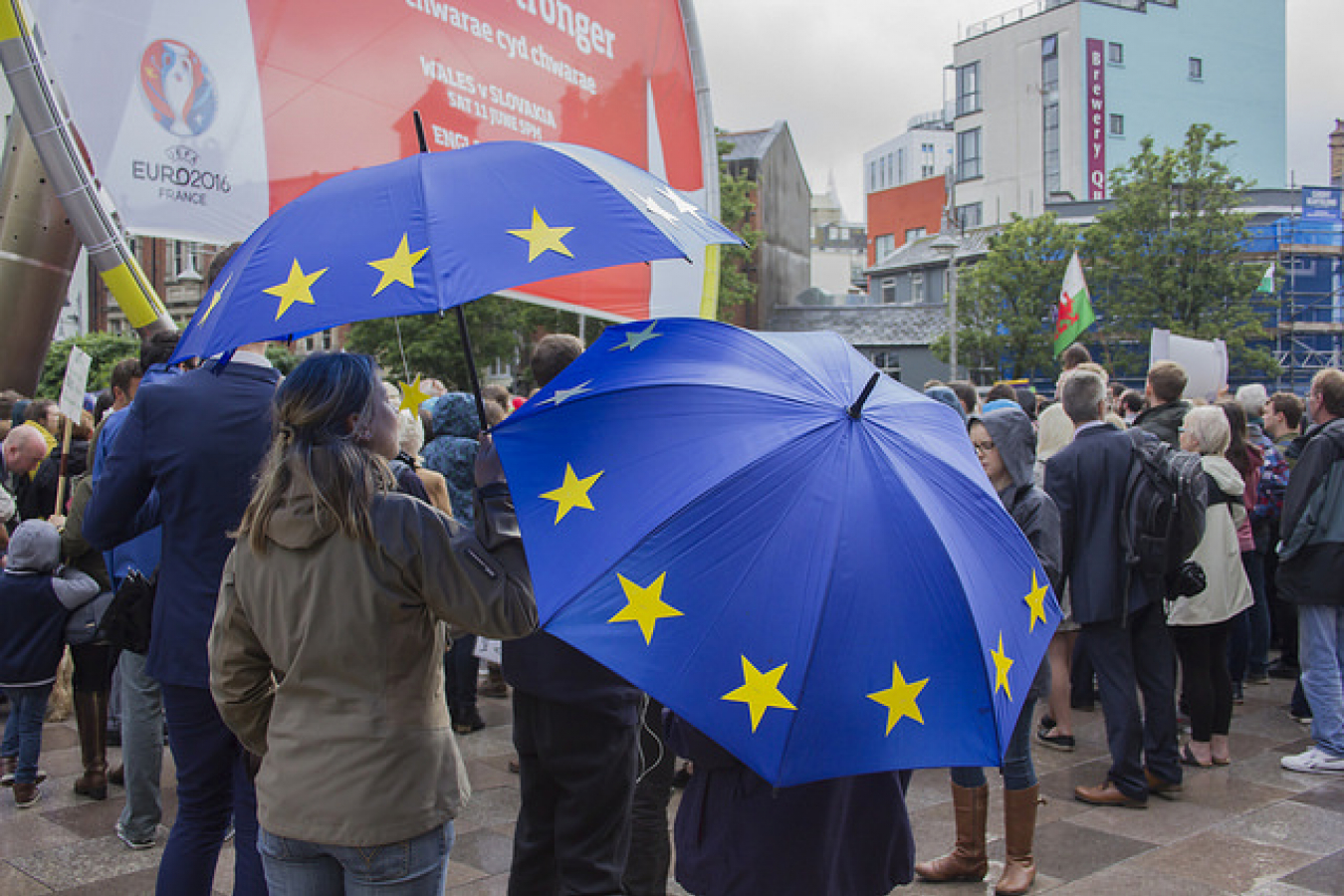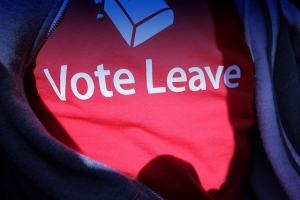Support migrant centric journalism today and donate

During campaigning in the European Union Referendum there had been rumours that the UK would announce new steps to restrict UK immigration from EU Countries in an attempt to increase support for the remain campaign. At the time Chancellor George Osborne, had denied claims that the government would make an 'eleventh hour' pledge on reducing UK immigration by EU migrants. No such pledge was made. As it happens the leave campaign won and it seems that Britain will leave the EU. More recently the UK Government has been trying to use EU migrants as a bargaining chip in negotiations on terms for leaving the EU.
During the European Union Referendum campaign sources close to UK Prime Minister, David Cameron, in the remain campaign were said to have been formulating plans to make some sort of pledge concerning UK immigration and EU migrants, but they were worried that any last-minute commitments would not have been viewed as being 'credible' or 'achievable.' According to a report published by Newsweek, on 15 June 2016 a senior official in the Remain campaign's ranks had told The Guardian that if they had made a last-ditch pledge on UK immigration and EU migrants, people would not have believed a word.
Unfortunately what has happened since then is that the UK Government has decided not to give assurances to EU citizens currently in the UK that they will be allowed to stay in the UK. European Union Citizens it seems will be used as a bargaining chip in the forthcoming negotiations in the UK Brexit from the EU. This is despite a Labour motion being passed in the House of Commons by 245 votes to 2 on 6 July 2016 that current EU migrants should be allowed stay in the UK.
EU Immigrants in UK may wish to apply for permanent residence
EU Immigrants to the UK and their dependents should seriously consider applying for a permanent residence card after five years in the UK. If you have permanent residence then you should be able to remain in the UK whatever UK immigration may decide in future on EU immigrants visa status in the UK.
During an interview with BBC Radio 4's Today program in June 2016, Osborne denied that discussions over a pledge had taken place to reduce EU immigration if the "Remain" campaign won. The Chancellor said: "The short answer is no, because we have a plan and the plan is to restrict the welfare that people get when they come to this country, so you don't get out until you put in." Most immigrants do not come to the UK to claim benefits and so in reality this would not make so much difference even if the remain campaign had won. However, this further confirms that the UK Government will try and find ways to restrict new EU immigration before the UK actually leaves the EU.
EU Free Movement Rights
The free movement of people, one of the cornerstones of EU policy, that gives citizens of all 28 member states the right to live and work in each other's nations, took centre stage in the campaign on EU membership on Thursday, 23 June.
During the campaign most UK businesses said that immigration from the EU is vital for maintaining staffing levels, while millions of Britons also benefit by travelling overseas themselves to live and work. However, it would appear that the Leave campaign has managed to stir up voters' fears over high UK net migration numbers and as we know was successful in the EU Referendum.
UK net migration greater than 300,000
Currently, the level of net immigration in Britain per year has exceeded 300,000, despite promises made by the Tory government to reduce that figure to the tens of thousands. Voters were not impressed by Cameron's attempts to renegotiate Britain's EU membership, which resulted in only small immigration reforms. The evidence suggests that even with Brexit reducing EU immigration this will not lead to a substantial reduction in immigration into the UK.
The immigration reforms negotiated focused on limiting the number of benefits EU migrants had access to in Britain. As the leave campaign won the referendum, many voters were it seems unimpressed with what Cameron had negotiated. In the current situation the immigration reforms are obviously of less relevance.
UK likely to try and reduce new EU immigration even before Brexit occurs
In 2017, Britain is due to assume the role of rotating president of the EU. As Britain has decided to leave the EU, it is uncertain that this will now happen. Britain needs to now negotiate terms for departure from the European Union.
Speaking to the BBC in June Labour's Deputy Leader Tom Watson, said: "With freedom of movement, it's one issue that's coming up on the doorstep." The Labour Party as well as the Conservative Party will be under pressure to be tough on immigration. While we think it likely that EU immigrants who were in the UK before 23 June 2016 will be allowed to stay in the UK we cannot be absolutely certain of this. That is why we suggest that EU citizens and their family members apply for permanent residence in the UK if they can.





















